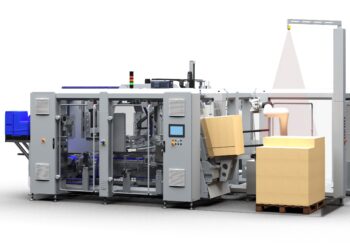Attitudes towards decaf are shifting as a growing number of consumers seek coffee without the buzz. Is it just another trend or have caffeine-free brews finally shed their ‘uncool’ image?
As the specialty movement gained momentum in the 2010s, ‘death before decaf’ became a popular saying among the coffee community. It appeared on merchandise such as T-shirts and caps, as slogans in marketing campaigns, and was used to name multiple independent coffee shops around the world. Its popularity reflected coffee consumers’ general view of decaffeinated coffee at the time: that it wasn’t worth drinking.
Yet, in 2025 opinion is changing, and the younger generations are leading the charge. Recent research from Statista and Mintel suggest in North America and the United Kingdom the popularity of decaf coffee is rising, especially among Generation Z and Millennials.
Erin Reed, Director of Marketing at Swiss Water Decaffeinated Coffee in Canada, says the company, which provides chemical-free decaffeination services, has witnessed a shift in decaf’s perception.
“Decaf is finally coming into the mainstream, gaining respect from both coffee drinkers and roasters. Younger generations are paying increased attention to what they consume and the impact their choices have on their health, with caffeine regulation being an area of focus,” says Reed.
“We conducted a study of 18- to 40-year-olds who drink decaf with some regularity (two or more times per week) and found the two prevalent reasons for consuming it were to improve sleep quality (50 per cent) and to reduce anxiety (50 per cent). Additional reasons include seeking more balanced energy throughout the day as well as a variety of physical health concerns.”
While Swiss Water’s research focused on the United States, Reed says the trend is relatively global in nature.
“It’s especially prevalent in North America and key Asian geographies, but we’re also starting to see interest in non-traditional coffee markets,” she says.
With a growing consumer base, it’s no surprise that coffee companies are taking note of the shift. A report from Mintel suggests that between 2022 and 2023 there was a 30 per cent increase in decaffeinated coffee product launches.
One such company is STōK Cold Brew Coffee, part of Danone North America, which launched two new decaffeinated products at the end of 2024. Brittney Polka, Vice President of Ready to Drink Beverages at Danone North America, says STōK saw an opportunity to reach new consumers and grow consumption outside of the peak morning period.
“As a leading ready-to-drink (RTD) coffee brand, we recognise that coffee lovers value customisation and personalisation, including with their caffeine consumption,” says Polka.
“We launched STōK Decaf in the brand’s two top performing flavours, Unsweet and Not Too Sweet. We saw an opportunity to reach new consumers and grow consumption outside of the peak morning occasion. Our Decaf products offer the same bold and smooth taste our consumers are used to, just without the caffeine.”

Polka believes social media and the younger generations’ preference for customisation is contributing to the increasing popularity of decaf products.
“The daily coffee ritual is such a personal choice, and consumers want to experiment by personalising and customising their cup of coffee – whether it be via roast level, brewing method, or adding enhancers like sweeteners, creamers, or cold foam,” she says.
“We’re seeing from social trends, like the rise of #CoffeeTok, that younger consumers continue to recreate coffee house experiences and want a breadth of options from which to choose, including decaf.”
Yet, it’s not just the health-conscious younger generations that are driving the change. Historically, the perceived lower quality of decaf coffee was one of the factors holding back this segment of the industry. But today, Reed says the tide is turning.
“Whereas in the past lower quality coffees were sent for decaffeination for cost reasons, increasingly we are starting to see higher quality coffees being decaffeinated and more respect paid to this group of coffee drinkers,” she says.
“People who drink decaf are doing so purely for the taste and love of coffee, therefore they truly deserve great coffee.”
The decaffeination process adds an additional cost to the productions process, which traditionally some roasters have offset by opting for cheaper green beans. However, as interest in decaf has increased, and more consumers are looking for a quality coffee experience, roasters are seeing the value in having a quality option.
“Decaf can – and should – taste as good as caffeinated. Of course, the bean goes through additional processing with decaffeination, and so there will be some impact to the coffee, but a high-quality process will have minimal influence,” says Reed.
“The Swiss Water Process aims to retain as much of the origin characteristic of the coffee as possible. As proof that decaf can taste as good as caffeinated coffee, last year we conducted a blind tasting event at World of Coffee Copenhagen, in which less than half of people tasting the coffees were able to correctly identify the coffees as caffeinated versus decaffeinated.”
There are multiple different processes used to decaffeinate green beans before they’re roasted. Chemical solvents, carbon dioxide, and water processing (such as the Swiss Water Method) are three of the main methods. While chemical solvents were once the preferred method, health and safety concerns have seen an increasing number of roasters turn to chemical-free methods.
“When people become aware of chemical decaffeination processes, they are sometimes scared to drink decaf. However, there are several great chemical-free processes that are widely available,” says Reed.
At the end of 2024, Coffee expert and Square Mile Coffee Roasters Co-Founder James Hoffmann conducted The Decaf Project in which a single lot of coffee was decaffeinated using three different processes. These beans were shared with members of the public for a live-streamed online coffee tasting.
“The expectation was that there would be significant differences between the caffeinated cup and each decaffeination process. But the result was that the greatest contributor to differences across the cups in aroma, flavour, body and acidity were due to how the coffees were roasted,” says Reed.
“So a good green coffee paired with a high-quality decaffeination process and a skilled roaster should result in a great cup.”
And it’s not just projects like Hoffmann’s putting the once-overlooked beverage in the spotlight. The Specialty Coffee Association’s Coffee Championships are thought to influence the coffee trends that trickle down the industry. In 2024, the US Brewers Cup Champion took the top honours with a decaf Typica from Finca Los Nogales in Colombia.
The winner, Weihong Zhang of BlendIn Coffee Club in Houston, Texas, is the first to take the US crown using a decaf coffee, describing it as “the best decaf coffee we have ever tasted”.
Both Polka and Reed believe the rising thirst for decaf isn’t a blip in its history. In 2023, the global decaf coffee market size was valued at US$19.5 billion, and market forecasts from Skyquest predict it will reach US$28.98 billion by 2032.
This article was first published in the March/April 2025 edition of Global Coffee Report. Read more HERE.





